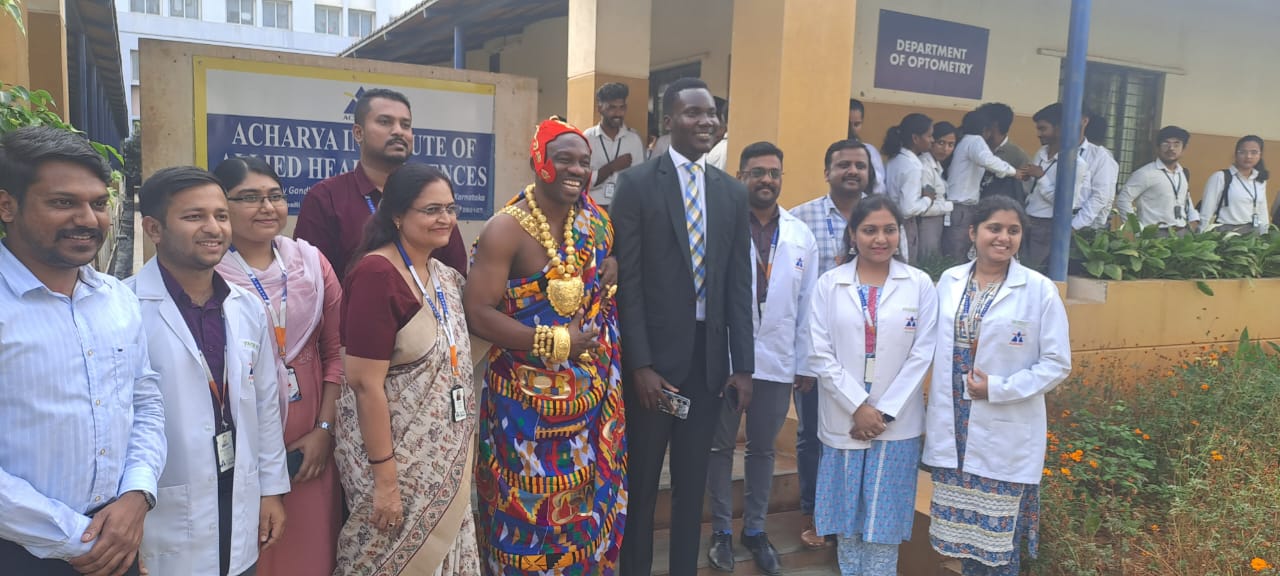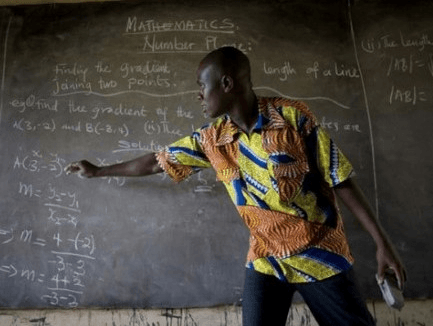
From rote to relevance
For decades, Ghana’s education system has been dominated by what students call “chew and pour”, that is rote learning, locally known as “Babadie”. Student success has often been defined by their ability to memorise lecture notes and reproduce them during exams.
Even though this has produced good exam-takers, it has stifled creativity, problem-solving and critical thinking needed for today’s knowledge-driven economy.
Currently, Ghana stands at a crossroads as the world transitions into a future powered by AI. If we continue to emphasise rote learning, we run the risk of creating a generation of graduates unable to cope with the demands of the job market of the future. However, if we embrace AI, then not only do we have the chance to revolutionise learning but also to tredefine the very essence of education itself.
Rethinking pedagogy through AI
The potential of AI is not limited to digitising existing systems, but it also can reshape pedagogy. AI adaptive systems can personalise learning, provide real-time feedback and challenge students to critical thinking exercises rather than simple recall. AI can automate repetitive administrative tasks, thereby enabling teachers to work as facilitators and mentors rather than mere purveyors of information.
Across Africa, early pilots have already begun to deliver on this potential. In Nigeria, a pilot AI programme doubled students’ learning gains in six weeks and did so particularly for girls, according to a report by Impact Lab (Jan. 2025). Rwanda’s success with government-NGO-private sector partnerships, highlighted by Mission Newswire and SoftBank News, shows that sustainable AI for education depends as much on teacher support and governance as on infrastructure. Kenya, meanwhile, has shown both promise and danger. The adoption of generative AI tools has sparked innovation but also a fear of overdependence, plagiarism and inequity, as noted by the InDepth Research Institute.
These examples show that AI adoption in education is not simply a technological issue but a governance one. The systems that manage access, ethics and oversight will determine whether AI is an enabler of opportunity or a driver of inequality.
A blueprint for Ghana
In my examining Ghana’s educational and digital policy landscape, I have consistently argued that technology-first rollouts such as the recent government Smart Schools initiative to distribute 1.3 million tablets are likely to fail unless underpinned by systemic reform, as reported by Business & Financial Times (Sept. 2025). Instead, there needs to be a policy framework that reframes AI in education from a hardware push to a holistic national strategy.
That strategy must be founded on four pillars:
Curriculum integration
AI cannot be layered onto the existing rote system but should be incorporated into Ghana’s competency-based curriculum to shift the focus from “what to learn” to “how to learn”. Instead of memorising formulas, for instance, students could use generative AI to simulate real-world problem scenarios, applying multiple steps and receiving adaptive feedback. For a subject like social studies, AI could generate contrasting debates on historical events, inviting students to think critically about evidence and build arguments. If done right, AI becomes a tool for inquiry, not another way to “chew and pour”.
Sustainable access
Free devices or subscriptions alone do not solve the underlying issue of inequity. Fewer than 30 per cent of Ghanaian households own a computer, according to The Borgen Project, which suggests that AI adoption could worsen the urban–rural divide. Unplanned AI adoption will likely widen the urban-rural gap between students. A public-private partnership (PPP) model that integrates government resources such as community ICT centres with private investments and international donor support offers a more sustainable pathway. This avoids the cycle of one-off donations and instead creates a financing system that is resilient to fiscal pressures.
Teacher Empowerment
AI is as transformative as the teachers who use it, and yet only 53 per cent of Ghanaian teachers report familiarity with ICT tools, according to Gender & Digital Africa. A national training can be delivered through existing platforms like the National Teaching Council’s e-learning centre. This would need to go beyond ICT skills to pedagogy, critical engagement and ethical use. Teachers must be encouraged to see AI not as a threat but as an ally to enhance their role as problem-solvers and creative enablers. Lessons from Rwanda have shown that teacher buy-in is key to introducing digital education reform.
Equity and Inclusion
In the absence of deliberate policy, AI can be an advantage for students in urban areas and further marginalise rural students. Expanding community ICT centres and localising AI content in Ghanaian languages are interventions needed. Equity does not come afterwards; equity is the measure of success.
Why It Matters Now
Each of these pillars moves Ghana away from a “tech-first” strategy and towards a system-first approach. AI is powerful, but without structural reform it risks becoming another layer of inefficiency. Combined, these recommendations form a strategic blueprint for Ghana’s AI-powered education transformation:
- An education curriculum focused on problem-solving rather than memorisation
- A funding model that will be sustainable in the long term.
- Teachers equipped to become AI-augmented facilitators.
- A national strategy based on inclusion and equity.
If implemented, Ghana’s vision can serve as a blueprint for the remainder of the continent. The goal should not be to mimic Silicon Valley but to construct a distinctly Ghanaian system that employs AI to solve systemic problems while respecting cultural values and maximising our infrastructure resources.
Risks and Cautions
Despite its promise, there are legitimate concerns regarding over-reliance on the technology. Education is ultimately about human connection, empathy and social development that no AI system can replicate. The risk is not in AI replacing teachers but in eroding the very human elements that make learning fulfilling and life-changing.
Data and privacy protection pose additional challenges. AI systems require enormous amounts of data to be able to function efficiently, especially in personalised learning. Consequently, concerns that could potentially arise from the methods employed in information gathering, storage and usage ought to be addressed effectively. This will include the establishment of robust data governance frameworks that will ensure student privacy while enabling beneficial uses of AI.
Cultural preservation is another important subject. While AI may aid in more efficient and personalised learning, it must not compromise the communal, storytelling traditions that have long been at the centre of African pedagogy. The challenge is how to maintain balance between technological innovation and cultural integrity.
Looking Ahead
Ghana’s transition from “chew and pour” to innovative learning through AI must not only be an educational reform. It has to be a statement of the nation’s intent to become a knowledge-based economy, capable of competing on the international stage yet staying true to its cultural heritage.
The narrative is no longer whether to adopt AI but how to use it in an equitable, sustainable and responsible way. Ghana has already laid strong groundwork with a National AI Strategy (2023–2033) and competency-based curriculum. The missing link is integration, a framework that connects technology to pedagogy, sustainability and equity.
The real test of success will not be technological progress only but graduates who are creative thinkers, can solve complex problems and make constructive contributions to their own society and to the wider international community. If Ghana can achieve this, education will not only have been modernised but will also have unlocked human potential at an unprecedented scale.
Sources
ImpactLab. “AI in Education: The Nigerian Pilot Program That Could Transform Global Learning.” January 23, 2025.
Mission Newswire. “Rwanda Program Improves Digital Education for Teachers, Youth.” September 18, 2025.
SoftBank News. “AI for Education: How Rwanda is Building an Inclusive Digital Learning Model.” March 12, 2024.
InDepth Research Institute. “AI in Kenyan Education: Kenya Leads in ChatGPT Usage and What It Means for Education & Skills Development.” July 29, 2025.
Business & Financial Times. “EdTech Insights with Kwame Nyatuame: Public-Private Partnerships—the Fuel Our EdTech Needs.” September 18, 2025.
The Borgen Project. “Ghana’s Tech Innovation in Education.” July 25, 2025.
Gender & Digital Africa. “ICT Education in Ghana.” 2024.
The post AI in Ghanaian education: From “Chew and Pour” to creative learning appeared first on The Business & Financial Times.
Read Full Story



















Facebook
Twitter
Pinterest
Instagram
Google+
YouTube
LinkedIn
RSS